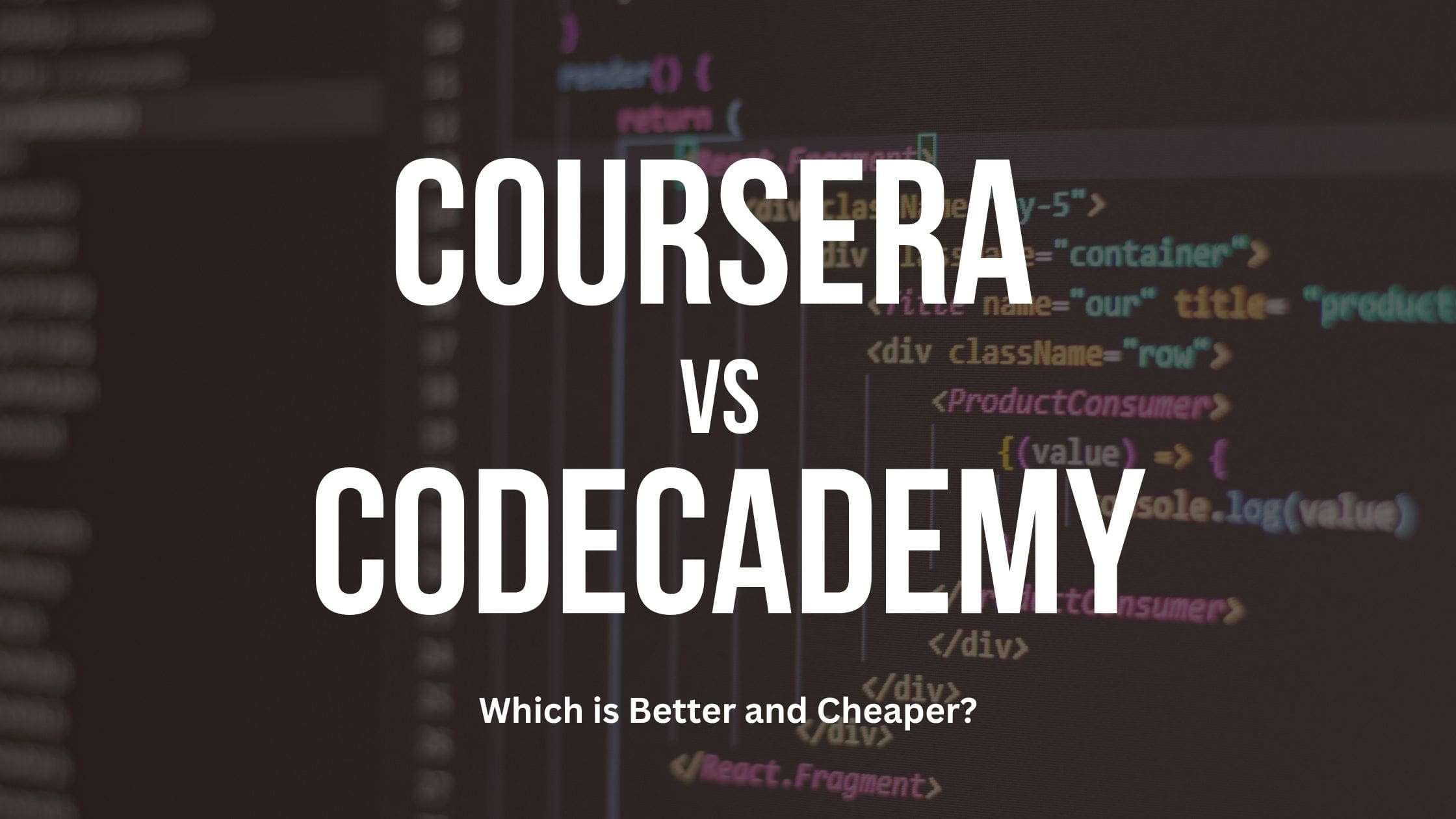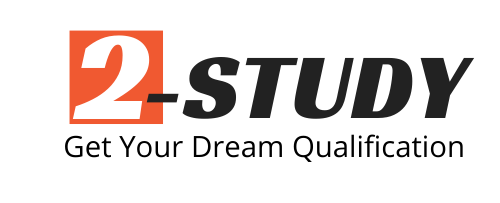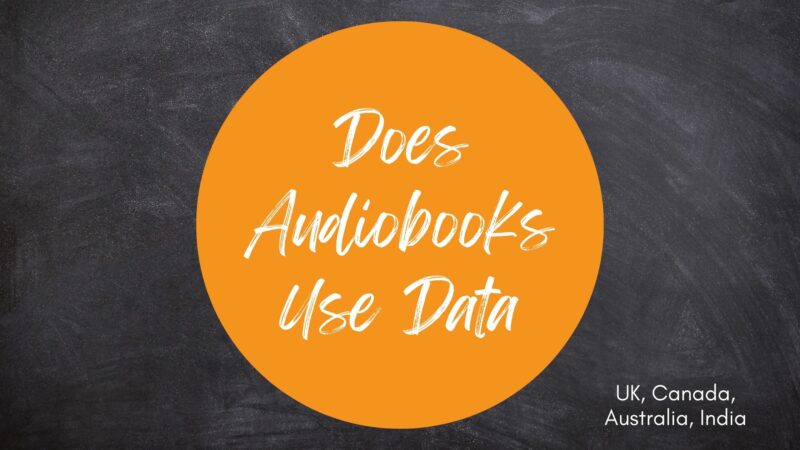Coursera Vs Codecademy: Which is Better And Cheaper?

Coursera and Codecademy are both online learning platforms, but they differ in their course offerings and teaching styles.
According to a comparison by BitDegree, Coursera has a higher rating than Codecademy, with a bigger variety of courses to choose from and a higher language count.
Career Karma also states that Coursera has more comprehensive and high-quality tech courses than Codecademy.
However, Codecademy offers an interactive, easy-to-follow user experience, while Coursera offers more of a traditional classroom experience with lectures, quizzes, and assignments.
Codecademy is better suited for learning coding and web development, while Coursera focuses more on higher education topics such as computer science and business.
Is a Codecademy certificate worth it?
Ultimately, the choice between Coursera and Codecademy depends on the individual’s learning needs and preferences.
Coursera Vs Codecademy
When it comes to online learning, Codecademy and Coursera are two of the most popular platforms available.
Codecademy offers interactive, self-paced courses that focus on coding and web development, while Coursera provides a more structured, instructor-led approach to learning with a wide range of courses from top universities and industry partners.
Choosing between the two platforms depends on the individual’s learning style, goals, and budget.
Codecademy And Coursera For Python
When it comes to learning Python, both Codecademy and Coursera offer a range of courses and resources to help learners acquire the necessary skills.
Codecademy focuses on introductory coding and web development courses, while Coursera offers courses in higher education topics such as computer science and business.
Both platforms have received positive user reviews, with Coursera slightly edging out Codecademy in terms of overall rating.
Codecademy offers an interactive, self-paced learning experience with an emphasis on immediate practice, while Coursera provides a more traditional classroom experience with lectures, quizzes, and assignments.
Coursera has a larger course library and offers degree programs, while Codecademy’s emphasis on coding and web development makes it a strong contender for beginners in the field.
Ultimately, the choice between the two platforms depends on the individual’s learning goals, preferences, and budget.
Comparison Table
Here is a comparison of Codecademy and Coursera:
| Feature | Codecademy | Coursera |
| Course Focus | Introductory coding and web development courses | Wide range of topics from top universities |
| Learning Style | Interactive, self-paced courses | Instructor-led courses |
| Course Structure | Modular, bite-sized lessons | Structured with lectures, assignments, quizzes |
| Certifications | Certificates of Completion | Professional certificates, degree programs |
| Price | Free courses, paid Pro plan | Free courses, paid specializations and degrees |
| Course Quality | Interactive, hands-on | Diverse, from top universities |
The comparison shows that Codecademy is more suitable for interactive, self-paced learning focused on coding and web development, while Coursera offers a wide range of topics from top universities with a more structured, instructor-led approach.
Coursera also provides professional certificates and degree programs, while Codecademy offers certificates of completion. The choice between the two platforms depends on the individual’s learning style, goals, and budget.
Coursera Certificates Worth: What Is Its Value
Comparing Coursera and Codecademy
When comparing Coursera and Codecademy, several factors come into play, including value for money, content quality, variety of courses, languages available, and pricing.
Value for Money and Content Quality:
Coursera is considered to have higher value for money and better content quality compared to Codecademy.
Variety of Courses and Languages Available:
Coursera offers a larger variety of courses, with around 3.9K courses available, compared to Codecademy. Additionally, Coursera provides a higher language count, with 10 languages available.
Pricing:
Codecademy has a lower starting price of $19.99, making it more affordable than Coursera.
Target Audience:
Coursera is recommended for individuals with no previous knowledge of any programming language, while Codecademy is suitable for those looking for a more hands-on approach.
Overall Assessment:
Coursera is considered better than Codecademy due to its more comprehensive and high-quality tech courses.
However, if the goal is to learn to program specifically, Codecademy is seen as the better option.
In the learning management systems market, Coursera has a 2.64% market share compared to Codecademy’s 0.11%, indicating a better market share coverage for Coursera.
From a user perspective, Coursera is often compared with other platforms like Udemy, and it is noted for providing access to classes taught by college-level professors from major US universities, such as Stanford.
Pros and Cons of Choosing Coursera or Codecademy for Learning
When considering whether to choose Coursera or Codecademy for learning, it’s important to weigh the pros and cons of each platform.
Coursera Pros:
- Hands-on projects: Coursera offers project-based courses, providing practical experience for learners.
- Quality education: It is known for providing high-quality education through courses taught by professors from major universities.
- Flexible learning options: Coursera offers various types of courses, including individual courses, specializations, and higher education degrees, providing flexibility for learners.
Cousera Cons:
- Limited hands-on interactivity: Some courses may have limited interactive elements compared to platforms like Codecademy.
- Accreditation: Coursera’s certificates are accredited from universities and institutions, but some learners may prefer platforms with accredited courses.
Codecademy Pros:
- Interactive and engaging courses: Codecademy is known for its interactive and engaging course content.
- Beginner-friendly courses: It offers beginner-friendly courses and paths, making it suitable for those new to programming.
- Supportive community: Codecademy provides a strong sense of community with coaches, advisors, and other graduates to help answer questions and provide support.
Codecamdey Cons:
- Limited information about instructors: Codecademy may have limited information about the instructors who created the courses.
- Accreditation: Codecademy’s courses and paths are not accredited, which may be a consideration for those seeking accredited platforms.
In conclusion, choosing between Coursera and Codecademy depends on individual learning needs and preferences.
Coursera is known for its quality education, hands-on projects, and flexible learning options, while Codecademy is praised for its interactive courses, beginner-friendly approach, and supportive community.
User opinions on Coursera and Codecademy
Based on user opinions and comparisons, here’s a summary of the feedback on Coursera and Codecademy:
Coursera User Reviews
- Pricing: Coursera offers a higher number of free courses (1,400) compared to Codecademy, and while it may have a higher price tag, it is often perceived as offering better value for money.
- Course Variety: Coursera is praised for its wide variety of courses, including professional, high-level instructors, and a more streamlined student experience.
- Accreditation: Some users note that Coursera’s certificates are not accredited, which may be a drawback for those seeking accredited platforms.
Codecademy User Reviews
- Course Focus: Codecademy is specialized in IT-specific courses, which some users view as a benefit, especially for learning programming from scratch.
- Interactive Learning: Users appreciate Codecademy’s interactive and engaging course content, making it beginner-friendly and suitable for those new to programming.
- Community Support: Codecademy provides a supportive community with coaches, advisors, and other graduates to help answer questions and provide support.
In summary, Coursera is often seen as offering better value for money, a wider variety of courses, and a more streamlined student experience, while Codecademy is praised for its interactive and engaging course content, beginner-friendly approach, and supportive community.
The choice between the two platforms ultimately depends on individual learning needs and preferences.
Coursera
Coursera is a U.S.-based massive open online course (MOOC) provider founded in 2012 by Stanford University computer science professors Andrew Ng and Daphne Koller.
The platform works with universities and other organizations to offer online courses, certifications, and degrees in a variety of subjects, including personal development, coding, business skills, data science, health, and more.
Coursera has a wide range of courses, with more than 275 universities and companies offering over 4,000 courses through the platform.
The platform is known for its high-quality courses, taught by top professors and instructors from renowned institutions. Coursera offers both paid and free courses, with some content available for free.
Coursera Features
Coursera offers a range of features, including:
- Access to Diverse Content: Users can access content from over 200 universities and companies, with unlimited access to 7,000+ courses, hands-on projects, and job-ready certificate programs.
- Course Creation: The platform allows users to create and publish their own courses.
- Online Degrees and Certificates: Coursera offers online degrees from top universities as well as certificates upon course completion.
- Business Solutions: Coursera for Business enables companies to upskill their employees with access to the platform’s content.
- API Access: Coursera provides API access, allowing partners to integrate with the platform and exchange data in near real-time.
- Flexible Learning: Users can learn at their own pace and access content from leading instructors.
While Coursera offers many benefits, it’s important to note some limitations, such as potential issues with the peer review function, large class sizes, and limited direct contact with instructors.
Coursera Pricing
Coursera offers various pricing options for its courses and programs, which cater to different learning needs and budgets. Here is an overview of the pricing structure:
- Free Courses: Coursera offers a wide range of free courses, allowing learners to access high-quality content without any cost.
- Coursera Plus: This is a subscription plan that provides access to a collection of courses for a monthly or annual fee. The pricing for Coursera Plus is as follows:
- Monthly subscription: $49.99 per month
- Annual subscription: $399.99 per year (save 50%)
- Guided Projects: These are hands-on, interactive courses that take 2-4 hours to complete. Prices for Guided Projects start at $9.99.
- Specializations and Professional Certificates: These programs focus on specific job skills and can take up to 6 months to complete. Prices for these programs start at $49 per month.
- MasterTrack Certificates: These are more extensive courses that take less than a year to complete. Prices for MasterTrack Certificates start at $2,000.
- Online Degrees: Coursera offers online Bachelor and Master’s degree programs with costs ranging from $9,000 to $50,000+ per year, taking up to 4 years to complete.
- Coursera for Business: Pricing for Enterprise plans for 125+ users requires consultation with one of Coursera’s advisors. The Team plan for 5 to 125 users is priced at $399 per user annually.
- Online Certificate Programs: Professional Certificate programs cost range from $39 to $99 USD per month. University certificate prices range from $1,000 to $3,000, with most programs offering the option to pay in four monthly installments or all at once to receive a 5% off discount.
Coursera Certificate
Coursera offers various types of certificates upon course completion, including university-issued certificates, professional certificates, and online degrees. These certificates demonstrate the learner’s professional skills and can be added to their portfolio.
Coursera certificates are issued exclusively by the university and are not co-branded with Coursera.
Learners who complete all courses in their university certificate program will earn a certificate from the university that they can share with their professional network.
The title of the certificate may vary depending on the institution(s) issuing it.
Coursera also offers affordable professional certificate programs taught by expert instructors from top companies and universities, with programs starting at $49 USD per month and a 7-day free trial.
Additionally, Coursera offers flexible online learning, allowing learners to learn at their own pace.
Codecademy
Codecademy is an American online interactive platform that offers free coding classes in 12 different programming languages, including Python, Java, JavaScript, Ruby, SQL, and more.
It also provides paid “Pro” options that give users access to personalized learning plans, quizzes, and projects.
Codecademy was founded in 2011 and has since expanded its offerings. It is a popular resource for individuals looking to learn how to code and improve their programming skills.
Codecademy Features
Codecademy is an online platform that offers interactive coding classes in various programming languages. It has two main features: a free version and a paid “Pro” version.
The platform provides a range of features and benefits to help users learn programming and improve their skills. Some of the key features include:
- Hands-on learning environment: Codecademy’s learning environment allows users to write real code from their very first lesson.
- Personalized learning plans: Codecademy offers personalized job listings and practice interview questions to help users assess their job-readiness.
- Wide range of programming languages: The platform teaches 12 different programming languages, including Python, Java, Go, JavaScript, Ruby, SQL, C++, C, and Swift, as well as markup languages HTML and CSS.
- Structured training courses: Codecademy Plus, a paid plan, includes over 300 structured training courses, projects, and quizzes for users who want to continue honing their technical skills.
- Job-focused courses: Codecademy Pro focuses on job-readiness and offers courses tailored to specific career paths.
- Career paths and courses: Codecademy’s courses and career paths can help users learn how to become better programmers, but there’s no guarantee that they will easily find a job after completing a course. It’s essential to build a well-rounded portfolio, including education, work experience, and certifications.
- Discounts for college students: Codecademy offers a 35% discount to college students, and promo codes are available for first-time signups.
Codecademy Pricing
Codecademy offers different pricing plans, including a free plan and paid options. The paid plans are the Plus and Pro plans.
- The Plus plan starts at $14.99 a month, while the Pro plan starts at $19.99 a month when paid annually or around $39.99 a month when paid monthly.
- The Pro plan offers additional features such as unlimited access to courses and personalized learning plans.
The company also offers a 35% discount to college students and promo codes for first-time signups. Paying for an annual membership provides about 50% savings compared to monthly payments.
Codecademy Certificate
Codecademy offers two types of certificates: Certificates of Completion and Professional Certifications.
Certificates of Completion:
These certificates are awarded to users who have fully completed a course or Path on the Codecademy platform while being a Pro or Plus member.
They provide proof that you have completed all the content in the course, including lessons, projects, quizzes, articles, and videos. However, free accounts (completing lessons only) will not be granted certificates.
Professional Certifications:
These certificates are designed to verify that you have demonstrated technical proficiency in a specific career domain.
Unlike Certificates of Completion, you just have to take the exams within a career path to get a Codecademy professional certificate.
These certifications are a new way to test your ability to recall and apply your skills in real-world environments.
To earn a certificate, you need to complete and pass the assessments in a career path. For example, if you want to review certain concepts before a technical interview, you can take a relevant course, such as Data Scientist: Analytics Specialist, and earn a Codecademy professional certification.
Codecademy’s professional certifications are recognized by employers and can help you prove your expertise in a particular career domain. They can be useful in job searches and professional networking.
Conclusion
In summary, Coursera and Codecademy cater to different learning needs.
Coursera offers a wider variety of courses, higher language options, and is considered to have better content quality, making it suitable for individuals seeking comprehensive and high-quality tech courses.
On the other hand, Codecademy, with its lower starting price and hands-on approach, is more suitable for those specifically looking to learn to program.






